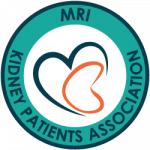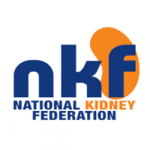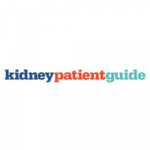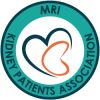Dialysis is a process for removing waste and excess water from the blood.
It may be used for those with an acute disturbance in kidney function, known as acute kidney injury, or progressive but chronically worsening kidney function, a state known as chronic kidney disease. Dialysis offered by Manchester Royal Infirmary.
This takes place at Manchester Royal Infirmary Renal Dialysis Unit (RDU) or one of the satellite units at Altrincham (20 stations) plus a home training area with 10 stations), Tameside (18 stations) Stockport (16 Stations), Macclesfield (12 stations), Octagon House (20 stations in main dialysis unit with a separate training and self-care area of 10 stations), Hexagon House (20 stations).
Haemodialysis (HD)
For haemodialysis an artificial kidney (dialyser) is used to filter the blood. Access to the bloodstream is required so that blood can pass through this dialyser on the dialysis machine. An access, known as a ‘fistula’, is made, usually in the arm.
Using a special fluid called dialysate, waste products are filtered from the blood through a very thin membrane, which has tiny pores (holes). The blood flows past the membrane; waste particles pass through, but blood cells are too large to cross the membrane, and the cleaned blood is returned to the patient.
Patients have haemodialysis two or three times a week for three to four hours, depending on individual needs.
Home Haemodialysis
Home Haemodialysis means that you have a kidney machine installed in your home so that you can carry out dialysis with the help of a partner, such as your spouse or parent. You dialyse three times a week using this equipment, therefore taking responsibility for your own treatment.
To be considered for Home Haemodialysis you must be fit and well whilst on dialysis, be able to needle yourself, have a caring, capable partner to help you and a spare room in your home, which can be converted for dialysis use.
Home Haemodialysis can give you more independence as it is fitted around your family life style
Peritoneal Dialysis (PD)
PD (also known as Continuous Ambulatory Peritoneal Dialysis or CAPD) can be fitted around normal daily activities, for example in the home or the workplace.
In this kind of dialysis, a special fluid (dialysate) is run into and out of the abdomen (peritoneal cavity) via a small tube. This soft, permanent tube (Tenckhoff catheter) is inserted through the abdominal wall into the peritoneal cavity during a short operation. The peritoneal membrane (peritoneum) which lines the abdomen is used as a filter to draw out waste products and excess water from the blood. This is done manually, on average 2 to 4 times a day. Some patients may use an APD (Automated PD) machine which is pre-programmed to carry out the exchanges overnight during sleep.
Holidays on Haemodialysis
Short breaks can be taken between haemodialysis sessions.
Longer holidays in the UK and abroad are quite possible for patients and their families, so long as arrangements are made to use another Dialysis Unit at the destination. Holidays can usually be arranged once a patient has been stable on haemodialysis for six months or more.
When choosing a holiday destination, the staff at the Dialysis Centre will advise about the nearest dialysis facilities in that region and check if space is available at the times requested. The British Kidney Patients Association (BKPA) has its own holiday dialysis centres or can recommend ones which they have inspected. It may also be possible to join an arranged group holiday.
- Your dialysis unit requires 6 – 8 weeks notice of your intention to take a holiday.
- It is usually easier to arrange holiday dialysis abroad than it is in the UK.
- Flights and accommodation should not be booked until dialysis slots are confirmed.
If you are on the transplant list, please remember to inform your transplant co-ordinator if you are leaving the country to go on holiday.











